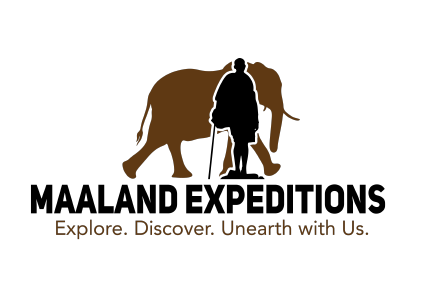The Rongai route is the only route that approaches Kilimanjaro from the North, close to the Kenyan border. Though gaining popularity amongst climbers, this route still experiences low crowds. Rongai has a more gradual slope than the mountain’s other routes. It is the preferred route for those looking for an alternative to the popular Marangu route, for those who would like a more remote hike, and for those who are climbing during the rainy season (the North side receives less precipitation). Rongai is a moderately difficult route, and is highly recommended, especially for those with less backpacking experience.
Although the scenery is not as varied as the western routes, Rongai makes up for this by passing through true wilderness areas for nearly the entire way. Descent is made via the Marangu route.
Arrive anytime at Kilimanjaro International Airport (JRO). We will arrange a private transfer from Kilimanjaro International Airport (JRO) to Arusha where the rest of the day is at leisure. We will gather in the hotel where you’ll have an overnight for a pre-climb briefing and an equipment check. We will also confirm you have the appropriate mandatory medical coverage and travel insurance. Overnight at McEllys Hotel (Bed & breakfast included).
Depart Moshi, morning drive to Marangu Gate for registration. After registration, proceed with a drive to the Rongai gate for about 5hrs. Today’s walk is at a leisurely pace through fields and then into the rainforest. Dinner and overnight at Rongai 1st Caves Camp.
About 4-5 hours climb through the heather will bring you to a second cave. If the weather is clear, Mawenzi will be in plain view; a stunning sight. Enjoy stopping to see the interesting heather-zone flowers and plants which grow alongside the trail. Dinner and overnight at Rongai 2 Cave Camp.
Today is a short trek designed to help you acclimatize. A smaller track leads off the main trail through the moorland and towards Mawenzi’s steeply rising slopes (Mawenzi peak). The trekking time is about 3 – 5 hours, arriving in camp for a hot lunch, and a chance to acclimatize while exploring the surrounding landscape of bizarre plants and rock formations and caves. Dinner and overnight at Kikelelwa Cave camp.
Trek from the moorland and eventually into the stark highland desert towards Mawenzi, on trails not frequented by many tourists. From the Tarn Campsite you will enjoy a magnificent view across the saddle towards Kibo, your final target. Total trekking time is 5-7 hours. Dinner and overnight at Mawenzi Tarn Camp.
The trekking time today is 5 – 7 hours, though a relatively easy hike across the wide saddle between Mawenzi and Kibo. The trek takes you across the massive saddle. The crossing is impressive and the landscape spectacularly stark. Prepare all your gear for the night ahead, and arrive in early to rest.
You are awoken at midnight, and depart the camp at about 1am. From your camp to the rim of the crater Gilman’s Point (18,750 ft. / 5,712 m) to Uhuru Peak, the trekking time is about 7 – 8 hours. Upon your 1am departure, the temperatures will be between -0 to -10° C, and then from 4am to 6am (just before sunrise), you can expect temperatures from -10° to -20° C. The slope is steep, with switchbacks, over loose rock and scree with some boulders as you near Gilman’s Point. You will stop at Hans Meyer cave on the way, the famous place where Kilimanjaro’s first western climber described in his journals. Once you arrive at Gilman’s Point (after about 5 – 6 hours) at the edge of the crater, the trail to the summit is less demanding, and is reached after a further 1½-2 hours along the snowy crater rim (depending on the season). After 3 hours of descending to Kibo Hut, there is a pause for rest & food, then another 3 to 4 hours to reach Horombo Hut.
Descend straight to the gate (5 – 6 hours), where you will collect your certificate then meet your driver and transfer to your hotel in Arusha for overnight.
Walking Boots, Training shoes, Water proof Jacket, Pants, Shirts, Trousers, Skirts, Socks, Gloves, Sun Hat, Balaclava / Woolen Hat, Gaiters, Thermal Underwear, Towel, Toiletries, Toilet Paper, Sun Glasses, Snow Goggles, Water Bottle, Walking Pole, Crampons, Torch / Flash light, Sun Cream/Sun block, lip salve, Whistle, Penknife, Day pack, Camera, Films, Emergency Foil Blanket, Four season Sleeping Bag, Heavy Duty plastic Bags, water Purification Kit and First Aid Kit.
